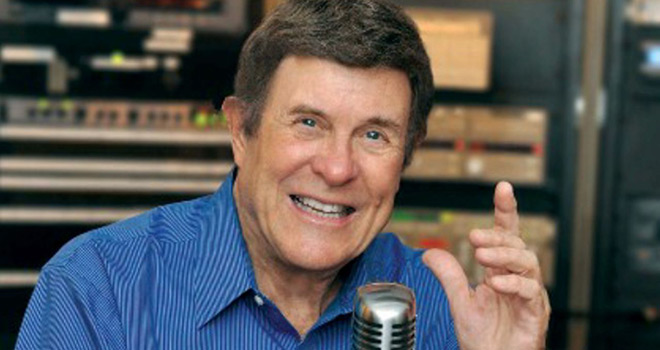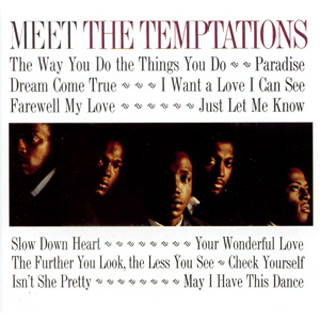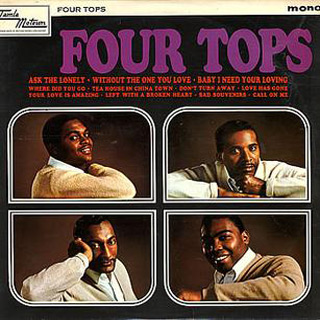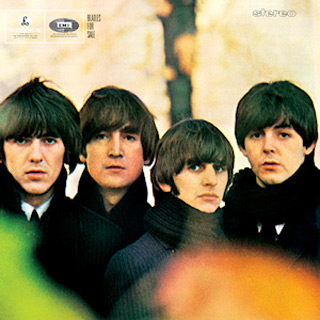
Broadcasting on various places through the years, including a 15 year stint on Sirius XM, Cousin Brucie is forever remembered as a cornerstone at New York City’s 77 WABC. Knowing for appealing to audiences of all ages, all thanks to his personal approach, Cousin Brucie has also built a platform on diversity; playing everything from Motown to Hard Rock to Surf Rock.
Memories many hold near and dear to their heart, in late 2020, Cousin Brucie returns home to the airwaves of 77 WABC. An amazing story of an broadcasting legend coming full circle, he is ready to rock and roll once again with his weekly Saturday Night Rock & Roll Party scheduled between 6 PM and 9 PM EST. Premiering on Labor Day weekend, the energized Cousin Brucie recently sat down to talk about his career in radio, what Rock-n-Roll means to him, returning to WABC, the key to his longevity, plus much more.
Cryptic Rock – You have been involved in entertainment through working in radio for well over 60 years. In that time you have built an amazing legacy as a Rock-n-Roll disc jockey that has touched so many lives. How would you describe your career thus far?
Cousin Brucie – The way I’ll describe it is I have been a very fortunate, lucky man. I was able to develop this broadcast career of mine, have been able to reach this amazing audience over all these years, and it just doesn’t seem to stop.
When I was at my last gig – Sirius XM, for 15 years – at about 10 years in I started getting a little antsy. I knew I wanted to do something different. Being at Sirius XM radio, which was 15 very good years reaching millions of people, however, I knew there was something missing from my career. I love radio, I love broadcasting; I always have. As you know I’ve been on the air, been a station owner, gone through it all, and loved every moment. While I was at Sirius something was missing. I realized one day that I was part of this very large corporation and I was not doing what I really wanted to do. I wanted to be in radio, I wanted the local feel on a national level. It didn’t happen over there, it was really quite corporate. I knew that there was going to be a change. I went through another couple of contracts, and the last couple of years I knew it was time for a move on.
Then, on the phone several times a month there would be a guy named John calling. He would call me with his wife Margo from the car – he lived out on Long Island. He used to call for dedications, but I didn’t know who he was. Then one day I read that WABC was purchased by ‘a person.’ Now, can you imagine ‘a person’ writing a personal check and buying this legacy radio station that has developed Rock-n-Roll in Top 40 radio all over the world? I then started to realize this man who was calling me was the person who bought that radio station.
Little by little we started talking, one thing led to the other, and eventually he and I signed a contract. It really started innocently over some phone calls about how he was enjoying the show. I was very lucky I had this guy in the audience. He is quite an amazing man, John Catsimatidis.
Cryptic Rock – Wow, that is an incredible story on how it has all come full circle for you. Doing it as long as you have, you were at the forefront of when Rock-n-Roll was taking off in America. With so many artists that were new to people’s ears, you were right there to bring it to them. What was that time like where everything was so fresh and new?
Cousin Brucie – I was very lucky to be there at the beginning and development, Rock-n-Roll was there for a while though. I grew up in Brooklyn and my DJ was Alan Freed; he really was considered to be the grandfather of it. Listening to him, eventually meeting him, and eventually being invited to his studio, I realized this is what I wanted to do. I was very lucky that I was there at the development stage though. I learned very quickly. My first job was in Bermuda, then I came to New York, then I was in Miami. I realized early in my career that the secret of developing a broadcasting career was learning how to talk to people, not at them.
Every time I’m on the air I feel like I’m visiting with friends. I talk right to them and I feel like I’m invited to their home. I realized radio, of all mass media, was the most intimate, delicate and sensitive. When I’m on the air, I’m in the car with people, I’m in their living room, bedrooms, showers, and baths with them. (Laughs)
It just came naturally for me. When I’m on the air I don’t even think about microphones, studios, or any of the equipment; I think that I’m on a visit with friends. I learned how to talk directly to those people. So when you’re listening to me, I’m talking right to you and you feel it. You feel I’m talking to you individually as a friend, and I feel you. I know what the audience is thinking and I feel the audience every time I’m on the air. I do that to this day, I’m with friends. That’s what happens to me when I go on the air and that’s why I’ve been around so long.
Cryptic Rock – You have a lot of great success with your personal approach. All the artists you introduced to people – from The Rolling Stones to The Beatles to Motown artists – is now all classic, timeless music. In fact, people all all generations know and love it. What do you attribute the longevity of classic Rock-n-Roll music to?
Cousin Brucie – It makes people very comfortable. Let’s talk about today – today we all want one thing: we want to be connected and want to feel comfort. God knows this world of ours that we living through today is a nightmare. What people need is a comfort zone. The Beatles, The Rolling Stones, Elvis, Chuck Berry, Jerry Lee Lewis, The Drifters, The Everly Brothers, etc., deliver this comfort and connection to people to a better time in our lives. I’ve been fortunate to be identified with these people, introducing most of them on the air originally, to this huge audience of ours.
When I was at WABC, very unusually of the ’60s, that station reached over 30 states at night; that’s how I got my national reach. It was a local radio station with a national footprint. That’s what I wanted to gain again today, which I have and I will. I got this local footprint, but I realized I was reaching people all over the country. There was New York, Long Island, Connecticut, and New Jersey, which is fine, but it also had people listening to us in the Dakotas and all over the bread basket of this nation. I then realized very quickly what people wanted all over this country. I also noticed we all come from very different parts of this country, but the one thing we had in common was the music. It was the music and the music connection; the poetry of the music. I was very lucky to be there at the time it was developing. As I said I learned the skill of talking to that audience and involving everyone together. It was a natural thing that happened to me and I’m still practicing that today.
That is what you heard in those days, it was really very simple times. Today, with the development of the internet and the devices we have, people all over this country will once again hear me locally with a national footprint. This is what is happening today with apps – Alexa, Siri, etc. It is affording me the opportunity once again to reach people all over and bring this local New York footprint all over the country.


Cryptic Rock – Fantastic. You returned to WABC on September 5th and will be on each Saturday night from 6 PM to 9 PM. Obviously your audience has been dedicated for years, but for those who are new to Cousin Brucie, what can they expect from this new Saturday Night Rock & Roll Party?
Cousin Brucie – First of all, you are going to get what you want; you are going to get comfort. You are going to be able to escape this nightmare that we are going through and relive a more innocent time from the ’60s and early ’70s. You are going to get music from the ’50s, ’60s, and ’70s. You are not going to get what I sounded like then, because we’ve all changed. Radio has a very wonderful identity: it changes with the audience; as society changes so does radio. Like a newspaper: you want to fit into your society and your circle. People are going to be able to relive those times, but it’s going to be today.
Very honestly social media has become my producer and director. You have thousands upon thousands of people writing to you on your Facebook page and websites with what they want to hear. First of all, the audience wants to recapture the ’60s when it was much easier to escape what is going on today. Everybody wants to escape for a little bit. You can never escape reality, but you can take some time off. I’m going to give people that time off.
The audience also wanted, and demanded, to hear my jingles again. They demanded to hear my jingles from the ’60s, which will make it more realistic for them. They also wanted my reverb back, which is amazing to me! I wasn’t going to do the reverb. I thought, “It’s 2020, we don’t need that,” but I was wrong. Why did they want the reverb? It also captures a more supposed innocent, quiet time of our lives. It does, too; it sort of adds a little warmth and color to the experience.
You put the package together and you are going to have a wonderful experience with Cousin Brucie. They have this time for three little hours during the week to relax and forget politics and all kind of issues going on in this country. I am going to make people relax and I want to offer them this connection.
Cryptic Rock – It sounds like it will be a great show – you have always done a fantastic job. It’s amazing with all the technological advances we have seen develop over the last 50-60 years, that radio is still a viable platform. It just shows how strong it really is. There is certainly a unique listener of radio, whether it be talk radio or a show like yours. What do you think has made radio so viable after all this time?
Cousin Brucie – I think of all mass media that radio is the most intimate. It is easy to reach, it doesn’t require too much work, and it also free. You have the intimacy, simplicity, it’s free, and it’s so easy to access. Today, with modern technology, there are so many devices that are so simple that you can just tell them something like, “Alexa, play WABC Radio,” and it will just happen. Wait, you hear that?” It just happened…Alexa, stop.” I knew that was going to turn on, but I just had to say that to you to show how all of a sudden this device turns on. There are just so many devices. I am accessible all over now, it’s so easy.
The reason radio is still around today is because, well, I just gave you a bunch. It’s easy, free, and accessible. We need things that are a little more easy to obtain and easy to be with. We have it, and WABC has given me a wonderful opportunity to continue my adventure. It’s going to give a new audience, and the old audience that crosses over, an opportunity to have some fun and forget for a few hours.
Cryptic Rock – It is a great escape we can all use. With all the music that you have brought to people and absorbed throughout the year, who are some of the artists that really stick with you?
Cousin Brucie – That’s a really tough question. It is like asking me, “What would you like to eat at a restaurant?” I love Elvis, I think he was probably one the greatest entertainers of all time. I also love The Beatles, The Stones, Chuck Berry, etc.
I like some of the artists today too, they are very good. What they are doing, if you listen to them, particularly the R&B or Pop artists, are taking some of the good feelings of the music of the ’60s-’70s and are incorporating it. The music that I love so much that is in my heart is The Drifters, Everly Brothers, The Beatles, The Stones, The Hollies, Eric Clapton, etc. They are all musical entities that add something to our lives, every one of them.
For the show, what I’m doing with the music is to mix ’50s like The Drifters, Chuck Berry, etc., and a few moments later, you are going to hear The Rolling Stones or The Hollies or a lot of Motown like Marvin Gaye, the Four Tops, or The Temptations. It’s going to be a beautiful mix of what people remember as a happier time. Was it really a happier time? Probably, but there were plenty of problems then too; we had all kinds of issues.
Music helps people forget, music relaxes people, and it connects us. Somebody in New York City will have a connect with someone in North Dakota. Someone in California will have a connection with someone living in Mississippi. That is something we all have in common. It’s not a science, just a human experience. William Shakespeare said “Music be the food of love” in Twelfth Night. I read Twelfth Night and discovered that music is a great connector, it brings us together.






